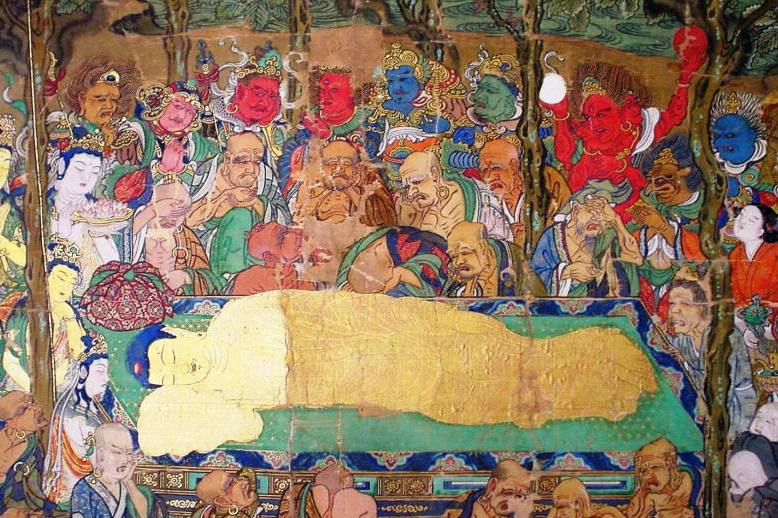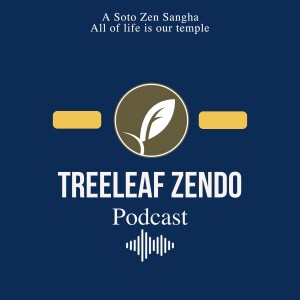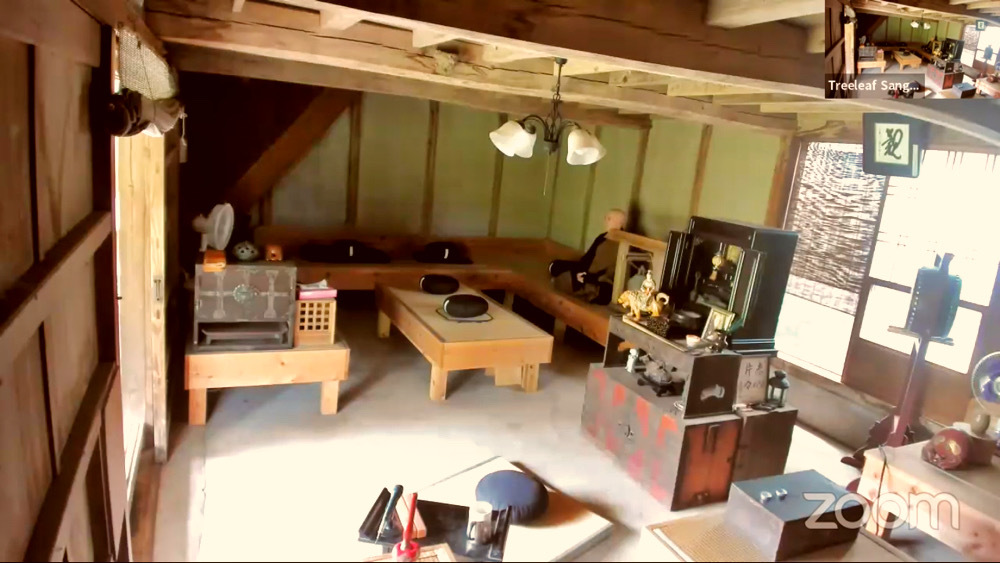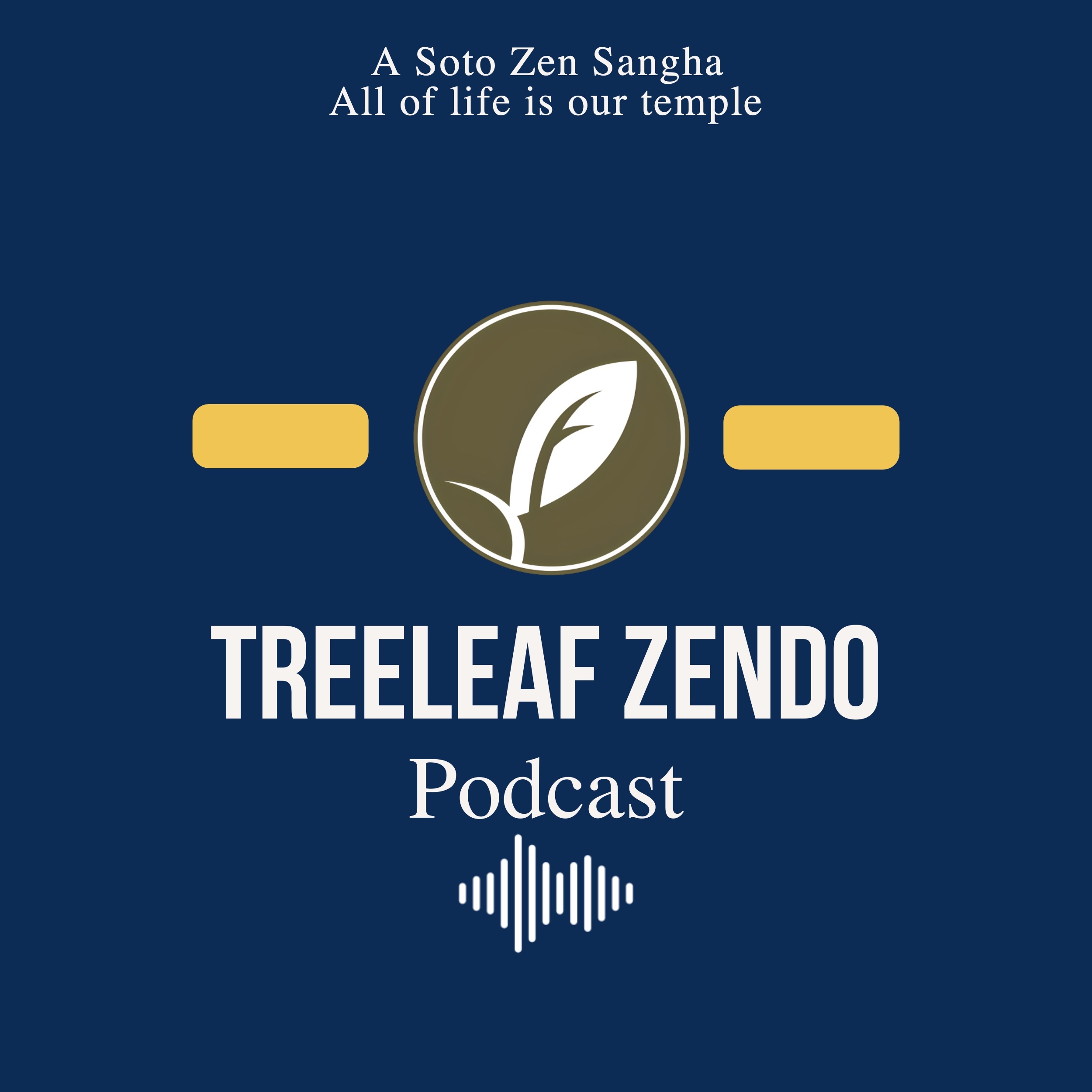Episodes
Episodes



Sunday Mar 27, 2016
March 2016 Zazenkai Talk (Shobogenzo - Kokū (Space - 虚空))
Sunday Mar 27, 2016
Sunday Mar 27, 2016
Because “this place is where something ineffable exists,” it is through the realization of these words that Buddhist patriarchs are caused to be. And because the realization of these words of Buddhist patriarchs passes naturally from rightful successor to rightful successor, the skin, flesh, bones, and marrow, realized as “a whole body,” are “hanging in space.” This space is beyond such categories as the twenty kinds of space [such as inside, outside, over, below, etc.]. In general, how could space be limited to only twenty kinds of space. There are eighty-four thousand kinds of space, and there may be countless more besides.
Further reading and discussion for this talk are available on the Treeleaf forum:March 4th-5th, 2016 - OUR MONTHLY 4-hour ZAZENKAI! »



Monday Feb 15, 2016
February 2016 SIT-A-LONG with Jundo: GIVING, GENEROSITY and ENGAGEMENT
Monday Feb 15, 2016
Monday Feb 15, 2016
As one of a series of talks putting the spotlight on Treeleaf's ENGAGED & CHARITABLE PROJECTS CENTER, I would like to speak of the traditional Buddhist Paramita (Virtue) of Dana ... Generosity, Charity, Giving.
To give and be charitable takes us out of our selfish concerns for our own well-being alone. There are hungry mouths to feed in this world, and we can all do something. There are none of us so impoverished or wanting that we cannot give something to someone in need ... money, food, kindness, comfort, encouragement, teachings of wisdom ... especially for so many of us in relatively wealthy Western society.
However, there is also something special about giving from a Zen Buddhist point of view ... namely, that even as we give, there is nothing in need of giving or lacking ... there is truly no giver, receiver or gift ... nothing in need of giving, no giver or hungry mouths to feed ... yet we give nonetheless, for there are hungry mouths to feed! All True At Once, As One.
Perhaps we might say that, transcending giver-receiver-gift, only the naked generosity remains which holds and sweeps in all of us in the world's embrace. As you breathe every breath of air, bite a sweet apple and drink the refreshing water that the earth provides, as the sunlight shines down, know all this as just the world's generosity. We must pay it back.
Further reading and discussion for this talk are available on the Treeleaf forum:SIT-A-LONG with Jundo: GIVING, GENEROSITY and ENGAGEMENT »



Thursday Feb 11, 2016
February 2016 Zazenkai Talk (SPECIAL "NEHAN-E" 4-hour ZAZENKAI!)
Thursday Feb 11, 2016
Thursday Feb 11, 2016
WELCOME to our Memorial & Celebration of NEHAN-E, (Pari-Nirvana) the traditional day to mark the historical Buddha's death and passing from this visible world. This is also a day for each of us to remember in our homes those family and friends who have gone before. As well, we particularly mark the passing of Nishijima Gudo Wafu and Rempo Niwa Zenji ...
Further reading and discussion for this talk are available on the Treeleaf forum:February 6th, 2016 - SPECIAL "NEHAN-E" 4-hour ZAZENKAI! »



Saturday Jan 23, 2016
January 2016 SIT-A-LONG with Jundo: TOTALLY ENGAGED
Saturday Jan 23, 2016
Saturday Jan 23, 2016
As this is just the New Year, it is a good time to stir the pot at Treeleaf's ENGAGED & CHARITABLE PROJECTS CENTER ...
We want to activate the place, and believe that it should be front and center in our Practice right with Zazen ... in fact, charity and volunteer activities --are-- Zazen "off the cushion."
Every couple of weeks or so, we will be presenting projects that anybody can ... should ... dig into, and we would like to make this a Community Team Effort! There will be many options available, something for anybody, even folks who have mobility or other health issues. There are always ways to reach out wherever you find yourself, always someone who you can help a bit no matter how much you are struggling in your own life (maybe just pick up a phone or computer and reach out to someone else who is also housebound, for example).
Further reading and discussion for this talk are available on the Treeleaf forum:SIT-A-LONG with Jundo: TOTALLY ENGAGED »



Tuesday Jan 19, 2016
January 2016 Zazenkai Talk (Welcome to the New Year)
Tuesday Jan 19, 2016
Tuesday Jan 19, 2016
To open this New Year, our reading will be the prologue to Master Dogen's Bendowa (On the Endeavor of the Way, Kaz Tanahashi Translation), written in 1231, one of the first pieces on Zen Practice written by Master Dogen following his return to Japan from China:www.lionsroar.com/just-wholeheartedly-sit
Further reading and discussion for this talk are available on the Treeleaf forum:January 1st-2nd, 2016 - OUR MONTHLY 4-hour ZAZENKAI! WELCOME THE NEW YEAR! »



Wednesday Dec 02, 2015
SIT-A-LONG with JUNDO: Rohatsu, Retreat and Family
Wednesday Dec 02, 2015
Wednesday Dec 02, 2015
This week we celebrate ROHATSU, remembering the Enlightenment of the Buddha who sat under the Bodhi Tree, realizing the end of his long search as he saw the light of the Morning Star. If you cannot travel to a Rohatsu Retreat, we invite you to sit in "retreat" just where you are, with our Treeleaf Sangha Annual 'ALWAYS AT HOME' Two Day 'ALL ONLINE' ROHATSU RETREAT, to be live netcast this coming Saturday and Sunday (or available for sitting any later time when you can arrange).
The two days will include Zazen sitting, Kinhin, Chanting, Zazen sitting, Oryoki, Zazen sitting, Bowing, Talks, 'Samu' Work Practice, and More Zazen Sitting, as in any Soto Zen Retreat, all in celebration of the Buddha's days of Zazen and Enlightenment. Folks will be sitting with us from places as far and wide as Sweden, Mexico, the US, UK, Australia, Canada, Japan, Indonesia, the Ukraine and other places ... all together as a Community, forgetting distance. The retreat is designed to be sat in any time zone around the world through a combination of 'live-live' and 'live though recorded' segments, and one may still join the Retreat and sit-a-long at ANY AND ALL TIME after, by the real time recorded version (no different from the original!). For further details, please have a look here.
Further reading and discussion for this talk are available on the Treeleaf forum:SIT-A-LONG with JUNDO: Rohatsu, Retreat and Family »



Wednesday Nov 11, 2015
November 2015 Zazenkai Talk (The Verse of Atonement, The Four Vows & Others)
Wednesday Nov 11, 2015
Wednesday Nov 11, 2015
For this talk, we will reflect on some of the Verses, Vows and Dedications
we are heard to Chant around here for each Zazenkai and at other times. For further reading on these and other Chants, I highly recommend
"Living by Vow: A Practical Introduction to Eight Essential Zen Chants
and Texts, by Shohaku Okumura, Wisdom Publications, 2012."Further reading and discussion for this talk are available on the Treeleaf forum:November 6th-7th, 2015 - OUR MONTHLY 4-hour ZAZENKAI! »



Saturday Oct 03, 2015
October 2015 Zazenkai Dharma Talk (Wild Ways of the Precepts in Japan)
Saturday Oct 03, 2015
Saturday Oct 03, 2015
Reading: "Wild Ways of the Precepts in Japan"
It is not known if the precepts in sixteen articles resulted from
Dogen’s own innovation or if he borrowed this group from another source.
[Dogen, in a writing describing the ordination ceremony for his
priests] states that the ordination ceremony described therein is
exactly the same as the one conducted by [Dogen's Teacher in China]
Ju-ching in 1225 when he administered the precepts to Dogen. The
reliability of that assertion, however, seems doubtful. [from "Dogen and the Precepts" by Prof. Steven Heine]
Further reading and discussion for this talk are available on the Treeleaf forum:October 2nd-3rd, 2015 - OUR MONTHLY 4-hour ZAZENKAI! »

Welcome to Treeleaf Sangha
Treeleaf Zendo is an all-digital practice place for Zen practitioners who cannot easily commute to a Zen Center due to health concerns, living in remote areas, or childcare, work and family needs, and seeks to provide Zazen sittings, retreats, discussion, interaction with a teacher, and all other activities of a Soto Zen Buddhist Sangha.
Available for you any time, all fully online.




